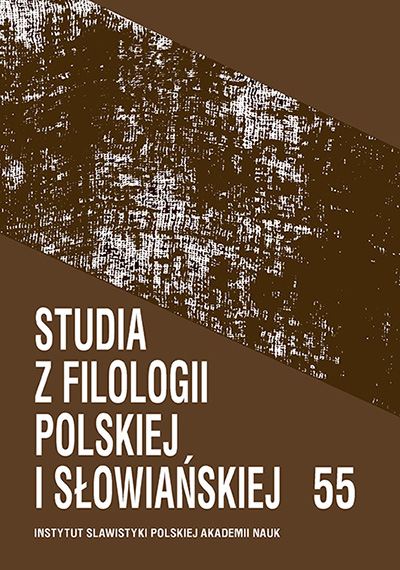Analiza kognitywno-semantyczna polskich oraz serbskich związków frazeologicznych z komponentem somatycznym określających stany emocjonalno-uczuciowe
A Comparative Cognitive-Semantic Analysis of Polish and Serbian Phraseological Units Which Are Related to Emotional-Affective States and Contain Components Referring to Parts of Human Body
Author(s): Vesna Jovanović-MihaylovSubject(s): Language studies, Language and Literature Studies, Theoretical Linguistics, Applied Linguistics, Comparative Linguistics, Philology
Published by: Instytut Slawistyki Polskiej Akademii Nauk
Keywords: phraseological units; somatisms; emotional-affective states; cognitive-semantic analysis
Summary/Abstract: This article offers an analysis of Polish and Serbian phraseological units which are related to emotional-affective states and contain components referring to parts of human body. The cognitive-semantic analysis presented in the study considers 145 such units. The corpus is divided into three thematic groups, taking into account all three types of emotions: positive, neutral and negative. The article presents the meaning of phraseological units in focus and considers the impact of symbolism of given parts of the body on shaping it. The conclusion highlights the key similarities and differences between the Polish and Serbian phraseological units under discussion.
Journal: Studia z Filologii Polskiej i Słowiańskiej
- Issue Year: 2020
- Issue No: 55
- Page Range: 1-21
- Page Count: 21
- Language: Polish

